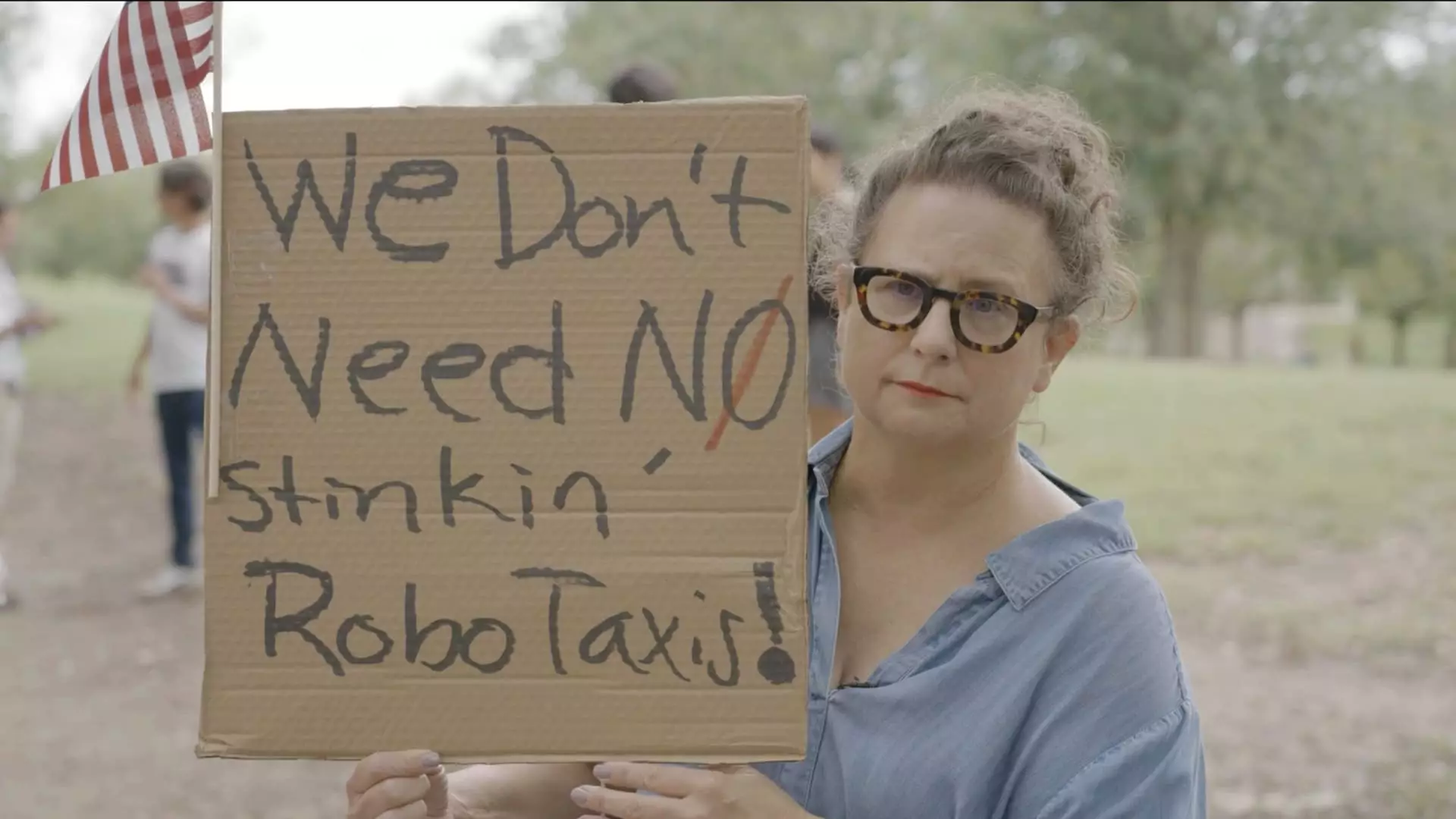Elon Musk’s aspiration to launch Tesla’s robotaxi service in Austin, Texas, is igniting fierce debate over safety and accountability as the launch date approaches. The skepticism surrounding this groundbreaking project has been amplified as protesters gathered in downtown Austin, voicing profound concerns regarding the implications of deploying autonomous vehicles without adequate regulatory oversight. Interestingly, this opposition is not solely centered around technological worries but also spills into political sentiments tied to Musk’s partnerships with controversial governmental figures.
Safety at Stake: A Frightening Reality
The core issue driving the protests revolves around Tesla’s Autopilot and Full Self-Driving (FSD) systems. These technologies, while marketed as cutting-edge advancements in automotive innovation, have been associated with numerous incidents on the road. The National Highway Traffic Safety Administration has reported hundreds of collisions, including tragic fatalities linked directly to Tesla’s driving assistance technologies. Critics are not merely hypothesizing about potential risks; they are raising alarms based on empirical data that suggests Tesla’s safety protocols may not be robust enough to justify the widespread deployment of a fully autonomous fleet.
Demonstrations Highlighting Serious Concerns
Advocacy groups like The Dawn Project are taking matters into their own hands, staging demonstrations intended to expose the shortcomings of Tesla’s technology. During one such event, a Model Y vehicle equipped with the latest FSD software dramatically showcased its failures by bypassing a seemingly innocuous school bus, triggering fears and anger among onlookers. Such stark demonstrations raise genuine questions about the level of oversight and testing that Tesla’s technologies have undergone before hitting the market. The shocking visuals of a child-sized mannequin being struck by a vehicle are more than just a stunt; they are a call to action demanding stricter regulations and transparency.
Distrust in Leadership: Musk’s Political Influence
An equally pressing issue is the intersection of Musk’s political allegiances and Tesla’s business operations. Many protesters not only distrust the technology itself but also disapprove of Musk’s collaboration with governmental figures who have been less than favorable in their dealings regarding public safety and transparency. Comments from individuals such as Stephanie Gomez highlight a sentiment of unease rooted in the belief that Musk’s influence may overshadow the voices of the citizens who are impacted by these decisions. The call for greater transparency regarding safety testing results has become a cornerstone of the protest, demonstrating that the community desires not only innovative technology but also accountability.
Community Voices Against Corporate Power
The current situation in Austin poses a critical reflection on the often unexamined dynamics between emerging technology and human safety. The citizens of Austin are voicing their dissent not only from a place of fear for personal safety but out of a desire for corporate accountability that respects their rights and well-being. As the narrative unfolds, it becomes apparent that public sentiment is adamant in advocating for a balance between technological innovation and the uncompromising need for safety—an aspect that seems to be obscured in the rush toward a more automated future. With the protests serving as a stark reminder, it is clear that the dialogue between Tesla, the public, and regulatory authorities has only just begun.


Leave a Reply